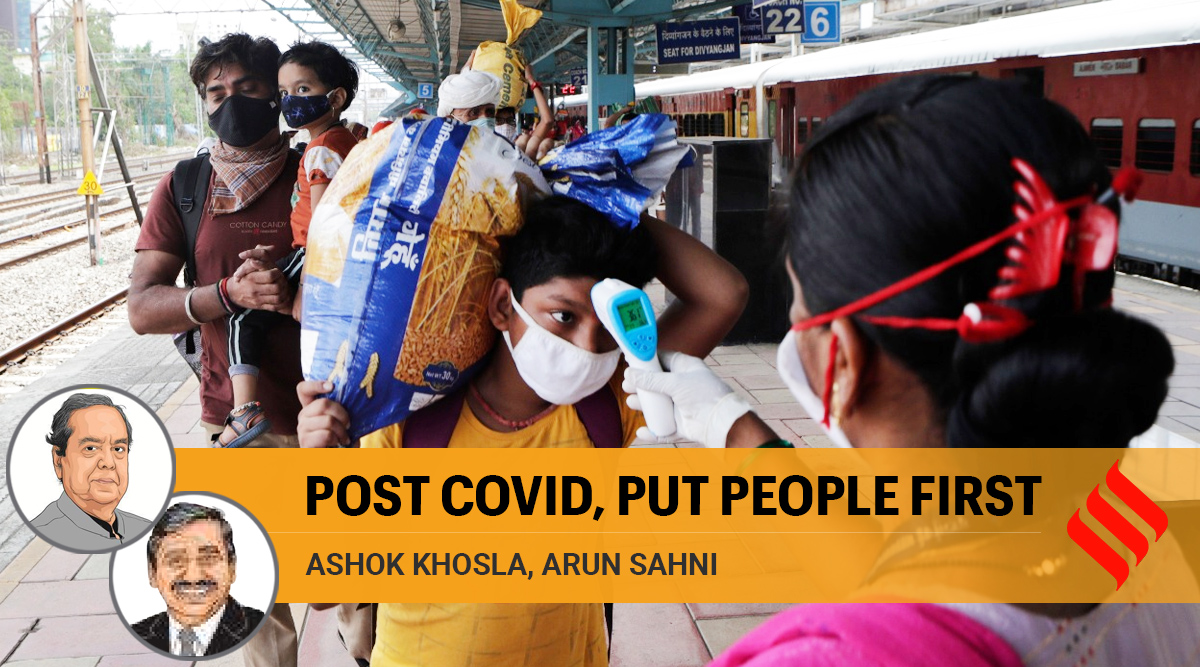Investments to eradicate poverty and build a resilient ecosystem will deliver among the highest returns to the economy in both the near and long term.
The current pandemic has offered mankind another opportunity to mend its ways. The first warning shot was the seminal work done by the “Club of Rome” in 1972. The forum realised that the human species, unlike other living beings, was consuming not for its needs but for its greed. It concluded that if humanity continues on this manic path, it will destroy mother earth. It captured the results of its scientific analysis in a seminal publication – Limits to Growth. The insights from this work informed the many successive UN Summits on environment and development issues that led to the global adoption of the Sustainable Development Goals by the leaders of 193 nations in 2015.
What do we need to do now?
The political leadership of the world must henceforth place the wellbeing of people and the productivity of nature at the core of their post-Covid-19 economic recovery plans. This is the quickest and surest way to revive the health of our fellow citizens, speed up revitalisation of our economies, and accelerate job creation.
Beyond the current pandemic, our world faces many deeper, more intractable and persistent crises. These range from those manifested locally, such as pervasive poverty and marginalisation, pollution and waste, land-use change, and species/habitat loss; through the national and regional ones, such as deforestation, human and wildlife trafficking, unsustainable trade practices and resource depletion; to the big global issues, such as the threats to the climate, biodiversity and oceans – and collapsing international financial systems.
There is a growing recognition that the pandemic, like these other challenges, is the consequence of the lopsided value systems and institutional arrangements that underlie our current economic policies and practices. If we return to “business as usual”, it is impossible to imagine the world achieving the levels of social justice, resource efficiency and environmental health that our nations are committed to.
To build a new global economy that ensures an equitable and environmentally sustainable future for all, nations, big or small, will have to pay much greater attention to facilitate systemic changes by building up strong civil societies, with research capacities for innovating suitable solutions. To achieve these complex but interlinked goals for a future global order, concurrent actions are therefore necessary.
First, put in place a new kind of global solidarity and international cooperation for restoring the balance between people and nature and to build future resilience against existential threats. Strong new institutional networks and nodal agencies need to be built up at regional and national levels to provide the bridge between global entities such as WHO, FAO, Red Cross/Red Crescent, etc., and local institutions.
Second, ensure that national and global commitments are met with alacrity for net-zero emissions, conservation of biodiversity, resource efficiency, reduction of wastes and pollution and maximise social and economic equity. To achieve these goals, there is a need to introduce serious policies and practices to replace fossil fuels with renewable energy; protect nature and restore our forests, rivers and degraded lands; and adopt nature-based solutions to replace mechanised, resource-guzzling ones.
Three, create safe and sustainable food systems by adopting regenerative agriculture, revitalise local production systems and shift to a more inclusive, green and circular economy, to secure the basic needs of food, water, energy and soil supplies, for all. This will require establishing a better balance between the income that farmers get and the prices that consumers pay.
Four, ensure that post Covid-19, exit and recovery cum fiscal stimulus strategies give priority to socially just, low-carbon, regenerative circular economic development, rather than bail-out policies that only serve to subsidise unsustainable and polluting industries. It has to be appreciated that investments focussed on eradicating poverty and building a resilient ecosystem will deliver among the highest returns to the economy in both the near and long term. They are also the lowest cost means for preventing future disasters, natural or manmade.
Therefore, there is a strong business and economic case for taking a proactive, bottom-up systemic approach to addressing such planetary emergencies which, unfortunately, can be expected to occur with ever greater frequency and ferocity.
It needs to be highlighted that it is not finances but the resolve of the leadership to achieve the above objectives that will be fundamental. At the onset of the Covid-19 pandemic, within weeks, governments all over the world were been able to dig out financial resources to deal with the challenge, in amounts that are several orders of magnitude larger than what had been asked for over the past decades for mitigating existential threats — climate stabilisation, biodiversity conservation, ocean health and reversing desertification. Or for programmes to improve human services such as healthcare, nutrition and education. It appears that mobilising resources to deal with threats to the concerns of the voiceless is much harder to do. For everyone’s sake, this must change before it is too late to avoid irreversible damage to the lives of people — and even to life on earth.
This column first appeared in the print edition on May 28, 2021 under the title ‘Post Covid, put people first’. The writers are with COR-India, a sustainable futures policy think tank.
Source: Read Full Article


